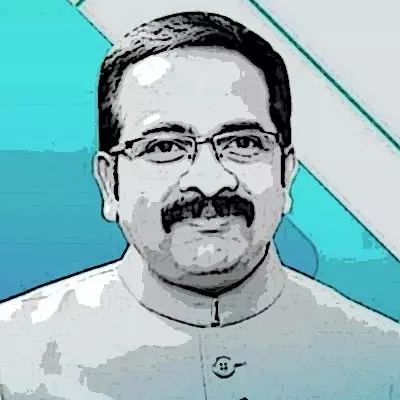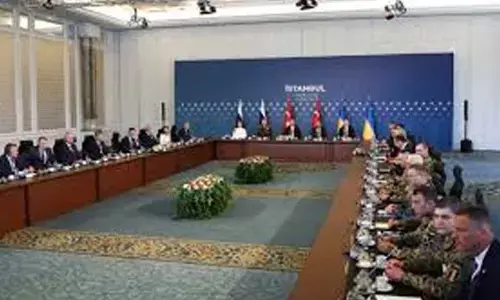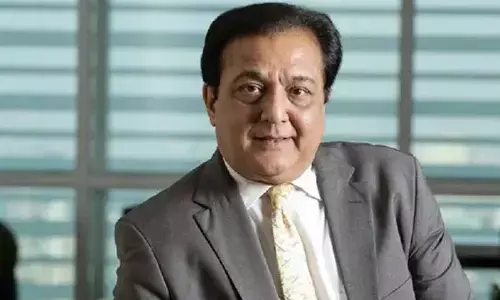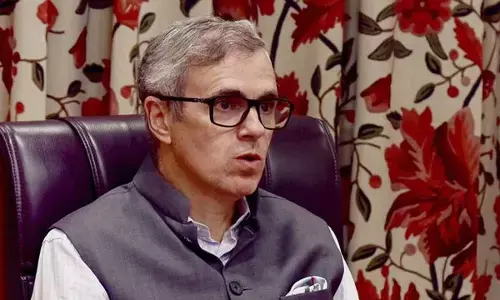Darwinism: Old politics will perish
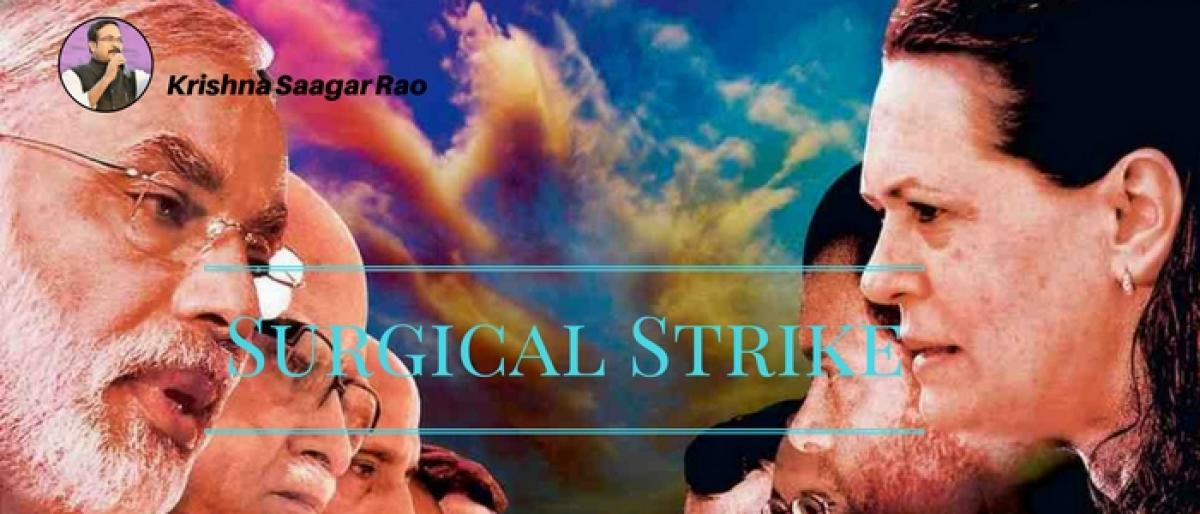
70 years in a nation’s timeline is substantial. Time is fleeting, so are political ideologies, ideologues, instruments and applications. The theory of Darwinism is applicable not just to living beings but also to live institutions.
70 years in a nation’s timeline is substantial. Time is fleeting, so are political ideologies, ideologues, instruments and applications. The theory of Darwinism is applicable not just to living beings but also to live institutions.
‘Survival of the fittest’ applies even to political parties in democracies across the world – “Those who adapt survive, those who won’t perish.” I strongly believe this evolutionary challenge is currently underway in the political ecosystem of India.
Indian National Congress is a pre-independent political entity. It was primarily set up as a common platform for fighting and achieving freedom. Prior to 1947, freedom from the British was a singular ideology and objective for all Indians.
Mahatma Gandhi’s advice to Nehru to shut down Congress party was in the true spirit of democracy. Bapu did not see the relevance of Congress party in its old form after independence. However, the decision to outrun Bapu’s advice and continue Congress party was driven out of a well-conceived dynastic plot by Jawaharlal Nehru. In retrospect, the contemporary history is a testament to that pre-conceived plot. India today has the 5th generation of Nehru scions at the helm of Congress, the dynastic party.
First things first. A dynasty was irrelevant even in 1947 right after independence; as we are a democratic republic, it’s even more irrelevant today. The irrelevance incremented all the way till 2014, with every generation of Nehru’s dynasty experiencing power.
Congress party was rendered irrelevant in 2014 General Election, where it won just 44 MP seats from across India and that pattern continues till date in almost all the subsequent state or local body elections. Indian voter’s message is very clear to Congress party: your politics won’t work anymore.
However, Congress continues to ignore that message, in the dynastic arrogance that it has been stuck for over 70 years. Anyone else would have understood the anger and disenchantment, Congress party wouldn’t and it refuses to acknowledge even today.
It has over the period turned into a thick-skinned, unscrupulous, self-serving and un-empathetic political formation, which lost its ability to be sensitive to its immediate environment. It happens, when you outgrow your relevance and purpose. No wonder it is naturally progressing itself to possible extinction. It proves the relevance of Darwinism in the political ecosystem.
I foresee an unprecedented extinction of Congress party from the mainstream political system of India. It will be quite tough for Congress to accomplish even a double-digit tally in the next General Election. This is not my partisan pre-electoral assessment 2 years in advance, but an outcome of incisive analysis of changing mindscape of the Indian voter.
If Congress has to correct its course, the time is now. If it has to survive, it has to reinvent itself as a new political organization under non-Nehruvian regime. There’s no other way out, no other cosmetic correction will save this dinosaur from extinction.
BJP is blessed with regeneration and re-adaptation intrinsically, owing to a professionally managed, democratic, political organisation. That is how, just under two decades the first of its political formation, Bharatiya Jan Sangh (BJS), merged into Janata Party for a contextual fight against rampant corruption in 1970.
Being a listening and feeling organisation, it re-emerged in 1980 as Bharatiya Janata Party with a progressive ideology of integral humanism and nation first. BJP has a built-in organisational mechanism through its core values to be grounded and to eternally have its ear to the ground.
BJP further evolved and adapted to the needs of changing India, through a change of old guard and redrawing its ideology to focus on the larger needs of Indians and India. Inclusive development, transparent governance, corruption-free administration and global leadership are the aspirations of 1.25 billion people. That’s exactly what is being promised and delivered by the BJP government under the leadership of PM Narendra Modi.
BJP understands, empathises and redirects its political agenda, adapting to the changing needs of the electorate. This singular competence is enabling BJP to lead the entire political ecosystem of India.
Parties like Congress are incapable of natural progression and evolution owing to their dynastic liabilities, highly centralised leadership, numbed and dumbed political leadership through incessant corruption.
These contrasting natural strengths and weaknesses of these two national political organisations, is the reason for the steady and steep rise of BJP, which is bound to continue till a credible alternative evolves in the national scene. However, it seems unlikely that a credible alternative evolves, even in the next decade.
Communist parties have no relevance in a democracy. Original Communist ideology is of single party rule. Communist system of governance is a clear alternative model to the democratic system of governance. It’s imperative that Communist parties are fundamentally irrelevant in a democracy. The local fusion of democratic values and Communist ideology is a disastrous model.
It is like Indian Chinese fusion fast food recipes, which are far from any authenticity and originality. Communist parties have been in Indian political ecosystem for over a century and have made zero impact on the composite governance model of India. Relevance of these parties in ‘New India’ is not even a point of discussion. Communist parties today are at the bottom of the food chain and are left with no survival opportunities. Extinction is imminent.
Regional satraps are what they are, satraps to national parties. The extinction of one leads to the other naturally. The current situation of UPA exemplifies this evolutionary trend. This coalition of losers is left with just 5 parties, with only DMK as a noteworthy partner.
Congress party, the primary host of almost all the regional parties in India in the last five decades, finds itself deserted by its foster children. Most of the regional parties are micro models of Congress party, they are mom & pop stores. While their original origins are through much proclaimed differentiation from the national entities, their post power equations are quite similar to their mother model ‘dynastic politics.’
The agenda of regional partisanship, protection of regional identity, development of the regional parties gets quickly diluted to their eternal quest to stay in power, no matter what. It leads to family control, nepotism, massive corruption, misgovernance and divisive appeasement politics. Regional parties which seemed to control the national governments for over two decades in the past have lost their strength, with their loss of regional credibility.
In 2014, Indian voters gave BJP and PM Narendra Modi a decisive new mandate with their changing priorities. They have removed any dependence on regional parties for delivering the governance agenda. As I see, this mandate will only get more decisive going forward to 2019.
This consistent voter pattern against regional satraps has been established in state elections across India, where the electorate chose BJP against very popular regional parties. Regional parties are fast losing their credibility. It’s the rigidity built into their political model, which works against their basic survival in a rapidly transforming new political environment across India.
New India needs inclusive development, progressive policies, citizen-centric administration, transparent governance, corruption-free and accountable leadership. New India aspires for credibility, respect, results and global leadership. Congress and regional satraps are being oblivious to these rising standards for public office, growing aspirations over public leadership.
Unacceptable, petty and divisive politics for family control, survival politics for relevance, is being rejected across India. Darwinism is more relevant than ever in Indian politics. Those who adapt will survive, others will perish.

